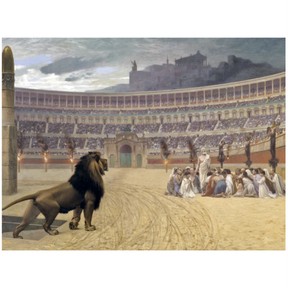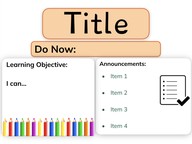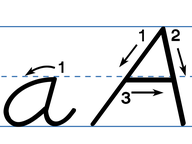
Religion and the fall of the Roman Empire
I can describe the role of religion in Ancient Rome and describe the fall of...



8,000 schools use Gynzy
92,000 teachers use Gynzy
1,600,000 students use Gynzy
General
In this lesson, students learn about the Ancient Roman religion, the rise of Christianity, and the possible causes of the fall of the ancient Roman Empire. They will explore the different Roman gods and goddesses as well as the split of the Roman Empire and the late emperors during this time.
Learning Objective
Students will be able to explain what led to the fall of the Roman Empire.
Introduction
Have students watch a video of a house falling apart after years of being unattended. Ask how this compares to the way a government or country must be maintained. Explain that the Roman Empire fell slowly as a result of many challenges from within. Show students the timeline of some late Roman emperors including Commodus, Diocletian, Constantine, and finally, the fall of the Western Roman Empire in 476 AD.
Instruction
Teach students about the late Roman Emperors: Commodus, Diocletian, Maximian, and Constantine. Explain how the Roman Empire was split and discuss the persecution of Christians during this time. Show students a map of Byzantium and explain how Constantinople relocated the capital from Rome to Constantinople. Students then practice locating these places on a map and completing the timeline. After this, discuss the polytheistic ancient Roman religion and have students identify the main gods like Juno, Jupiter, Venus, Mars, Apollo, and Mercury. Finally, show students some of the possible causes for the fall of the Roman Empire including overexpansion and invasions.
Quiz
Check student understanding with ten multiple-choice, fill-in, and true or false questions.
Closing
Students drag the gods and goddesses to the correct description.
The online teaching platform for interactive whiteboards and displays in schools
Save time building lessons
Manage the classroom more efficiently
Increase student engagement
Discover more!
About Gynzy
Gynzy is an online teaching platform for interactive whiteboards and displays in schools.
With a focus on elementary education, Gynzy’s Whiteboard, digital tools, and activities make it easy for teachers to save time building lessons, increase student engagement, and make classroom management more efficient.



